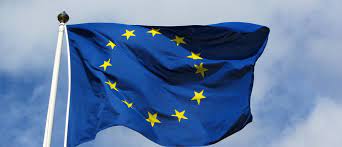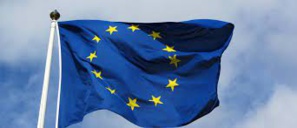As part of its efforts to reduce dependency on Russian fuels and develop a buffer against supply shocks, the European Union has launched a platform for European Union countries to buy gas and liquefied natural gas together.
The invasion of Ukraine by Russia, Europe's biggest gas supplier, pushed already-high energy costs to new highs, prompting the EU to embark on a mission to reduce reliance on Russian fossil fuels by increasing imports from other nations and developing renewable energy more quickly.
At a conference last month, EU leaders agreed coordinated gas purchases, which states such as Spain and Greece had requested to offer a buffer against potential supply shortages. Russia provides 40% of the EU's gas.
Earlier this week, a newly constituted platform of Commission and EU country leaders met to aggregate demands and coordinate talks with key gas and LNG suppliers.
The programme is entirely optional, and governments are not obligated to participate. The EU's weight as the world's largest gas importer will be used to attract supply "at stable prices that reflect the predictability and magnitude of the joint EU market," according to the Commission.
After Russia initiated a "special military operation" in Ukraine, European gas prices soared to new highs, and analysts have warned that a rush from Europe to buy huge amounts of non-Russian LNG could leave poorer countries unable to pay the supplies they require.
The EU has committed to phase out Russian fuels by 2027, and will present a detailed strategy in May.
The EU's gas storage capacity is now at 26 per cent capacity. Countries are discussing a law that would require them to fill storage to at least 90 per cent capacity by Nov. 1 each year beginning in 2023, and 80% this year, with several nations anxious about how to split the cost of doing so.
The platform will also allow hydrogen purchases, according to the Commission, as the EU attempts to transition from fossil gas to low-carbon gas in the future to meet its climate change targets.
(Source:www.reuters.com)
The invasion of Ukraine by Russia, Europe's biggest gas supplier, pushed already-high energy costs to new highs, prompting the EU to embark on a mission to reduce reliance on Russian fossil fuels by increasing imports from other nations and developing renewable energy more quickly.
At a conference last month, EU leaders agreed coordinated gas purchases, which states such as Spain and Greece had requested to offer a buffer against potential supply shortages. Russia provides 40% of the EU's gas.
Earlier this week, a newly constituted platform of Commission and EU country leaders met to aggregate demands and coordinate talks with key gas and LNG suppliers.
The programme is entirely optional, and governments are not obligated to participate. The EU's weight as the world's largest gas importer will be used to attract supply "at stable prices that reflect the predictability and magnitude of the joint EU market," according to the Commission.
After Russia initiated a "special military operation" in Ukraine, European gas prices soared to new highs, and analysts have warned that a rush from Europe to buy huge amounts of non-Russian LNG could leave poorer countries unable to pay the supplies they require.
The EU has committed to phase out Russian fuels by 2027, and will present a detailed strategy in May.
The EU's gas storage capacity is now at 26 per cent capacity. Countries are discussing a law that would require them to fill storage to at least 90 per cent capacity by Nov. 1 each year beginning in 2023, and 80% this year, with several nations anxious about how to split the cost of doing so.
The platform will also allow hydrogen purchases, according to the Commission, as the EU attempts to transition from fossil gas to low-carbon gas in the future to meet its climate change targets.
(Source:www.reuters.com)






